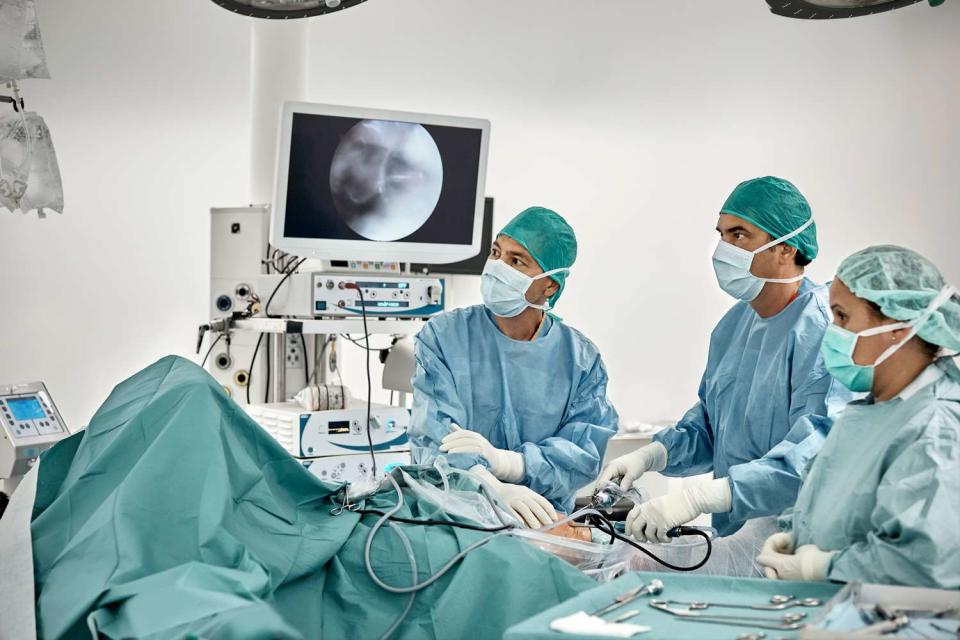Alzheimer’s Could Be Transmitted via Bone Marrow Transplants, Researchers Say
A new study found that healthy mice that received transplants from mice with Alzheimer's disease experienced quick cognitive decline

Getty
A stock image of medical professionalsA new study found that Alzheimer’s could potentially be accelerated by bone marrow transplants from donors with the disease.
On Thursday, a group of researchers from the University of British Columbia in Canada published a study in the scientific journal Stem Cell Reports that found that lab mice that received bone marrow transplants from other mice that had a protein associated with Alzheimer's experienced rapid cognitive decline.
The study, researchers said, could help scientists start to pinpoint what exactly contributes to Alzheimer's and other types of cognitive decline — especially because so much is unknown about Alzheimer's, including whether it's caused by the brain or by genetic or environmental factors.
Related: New Blood Test May Help Predict Alzheimer's Risk
"This supports the idea that Alzheimer’s is a systemic disease where amyloids that are expressed outside of the brain contribute to central nervous system pathology," Wilfred Jefferies, an immunologist and an author on the study, told Neuroscience News.
“As we continue to explore this mechanism, Alzheimer’s disease may be the tip of the iceberg and we need to have far better controls and screening of the donors used in blood, organ and tissue transplants as well as in the transfers of human-derived stem cells or blood products," Jefferies added.
In the study, the researchers used both healthy mice and mice showing signs of Alzheimer's disease, and transplanted bone marrow to them from mice with a hereditary form of Alzheimer's. The healthy mice began developing signs of Alzheimer's at 9 months old, and the mice that already had the Alzheimer's protein began to experience cognitive decline at 6 months old.
Related: Where You Live Might Increase Your Risk of Developing Alzheimer’s, New Research Says
"The fact that we could see significant behavioral differences and cognitive decline in the APP-knockouts at 6 months was surprising but also intriguing because it just showed the appearance of the disease that was being accelerated after being transferred," the study's first author, Chaahat Singh, told Neuroscience News.
Never miss a story — sign up for PEOPLE's free daily newsletter to stay up-to-date on the best of what PEOPLE has to offer, from celebrity news to compelling human interest stories.
The University of British Columbia researchers wrote that bone marrow and other medical donors should be screened for Alzheimer's before they are able to give a transfusion.
Related: FDA Fully Approves New Drug That Can Slow Progression of Alzheimer's Disease
However, several other scientists who spoke with Medscape warned that the risk of a human receiving Alzheimer's via a bone marrow or stem cell transfer is very low.
Paul Morgan, a dementia researcher at Cardiff University in the United Kingdom, told the scientific outlet that the study involved a "very specific experimental situation," and that it is a "gargantuan leap" to say that there is a significant risk in humans for spreading Alzheimer's through transplants.
For more People news, make sure to sign up for our newsletter!
Read the original article on People.

